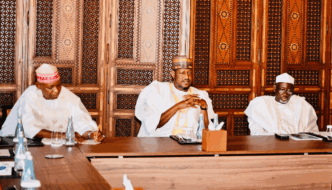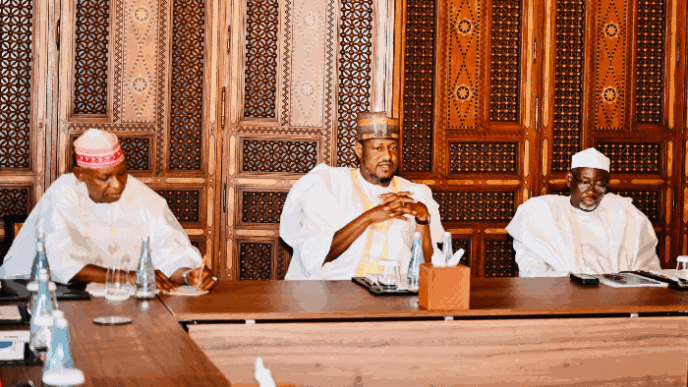Danbatta flyover in Kano state
BY NAZEER BABA
I must admit, when the Academic Staff Union of Universities (ASUU) announced a two-week warning strike with a possible escalation plan, I said to myself, “this is long overdue.” The drama between the government and the university union has lingered for so long that it might as well be included as a clause in students’ admission letters; something like “you are admitted to study for four or five years, with the possibility of an ASUU strike that may extend your stay by another year or two”. It sounds funny, but it’s a painful reality that generations of students in Nigeria have come to normalise. As a result, young Nigerians in their 20s struggle to meet college deadlines while young people within the same age bracket in other countries compete for top jobs in leading corporations.
For me, the constant complaints about poor leadership, which explain our current situation as a nation, have become cliché. Yet, true to the words of Emir Muhammadu Sanusi II, “you rise and fall with the quality of your leadership, and Nigeria has had lousy leadership for a long time”. Our leaders make beautiful speeches about the importance of education, how it builds nations, creates jobs, and secures the future. But their actions often stand in complete opposition to their words. Year after year, education budgets shrink and infrastructure decays.
Still, the failure is not entirely theirs. As citizens, we must reflect on the quality of service we demand and how we sustain mediocrity. Take Kano state, for example, a state that prides itself as the commercial centre of northern Nigeria. Today, it ranks first among states with the highest number of out-of-school children, a staggering 1.89 million, representing 39.2 percent of its school-age population. Katsina follows closely, with 1.4 million out-of-school children, translating to 45.9 percent of its school-age population.
Advertisement
While Kano has become a theatre of flyover bridges instead of state-of-the-art schools and quality teaching delivery, Katsina boasts of hosting a state burial as one of its notable achievements. What do these two states have in common? They both shut down schools for a month to allow students to go home and observe Ramadan fasting. Ridiculous, I know. But this unfortunately captures our misplaced priorities as a nation that treats education as an afterthought, not a foundation.
The truth is simple: no nation progresses, no startup succeeds, and no innovation thrives without quality education. That’s why China stands today as the world’s second-largest economy and the top global source of engineers, researchers, and scientists. That’s why Rwanda, even after the infamous 100-day genocide, has rebuilt itself into a model of literacy, governance, and digital infrastructure in Africa. And that’s why Singapore, with no natural resources, transformed into one of the world’s most educated populations and a global hub for finance, logistics, and technology.
Education is not charity; it is an investment. It builds the human capital that drives every other sector. Without it, every reform collapses, every policy fails, and every promise fades. While industrial action remains the most viable tool to draw the government’s attention to the plight of university teachers, it should not be the only one. For decades, ASUU has relied solely on strikes to press home its demands. This speaks volumes about the union’s lack of innovation in exploring alternative conflict-resolution mechanisms such as legislative advocacy, research-driven policy proposals, and strategic partnerships with the private sector. The strike model may win sympathy but loses credibility when repeated endlessly without lasting results.
Nigeria must begin to treat education as an economic strategy, not a social burden. The federal and state governments should align university curriculum with the country’s priority growth sectors like agriculture, renewable energy, ICT, construction, manufacturing, and finance. Education policy should mirror the national development strategy, not exist in isolation.
Advertisement
Equally important, the private sector must become a genuine partner. Through tax incentives and co-funding mechanisms, companies can fund university research. This approach has worked in countries like South Korea, where strong university–industry collaboration drives economic competitiveness. When businesses invest in research, government spending becomes lighter, and education becomes more responsive to market realities.
Finally, successful countries around the world have achieved greatness not by accident but through policy consistency. Every education reform must be sustained long enough to bear fruit. Nigeria must therefore reform its Education Act to ensure that at least 20 percent of the national budget is dedicated to education, and that such funding is protected by law to avoid political interference and the inconsistencies that come with changes in administration. Teachers’ welfare, university autonomy, and research funding should be guaranteed by legislation, not negotiated through strikes every few years.
Because at the end of the day, a country that builds flyovers instead of classrooms may move traffic, but it will never move forward.
Nazeer Baba can be contacted via [email protected]
Advertisement
Views expressed by contributors are strictly personal and not of TheCable.










